May Reads of the Month
A space tour de force, more Backman, Swift's CEO Era, and some reflections on bravery in the jungle.
May-cember came and went with the usual craziness: end-of-the-year kindergarten events had me in a puddle, work took me to Nashville (a trip I relish every time they ask), and the road to divorce continues to be its own part-time job. It’s an exhausting time in every sense, but the end of this month comes with a reprieve. I’ll be enjoying one of my favorite beaches in the whole world, the one right down the road from where I grew up—Seabrook Island—with my girl and my family.
This place is precious to me and full of memories from summers spent at the Episcopal camp—St. Christopher—mornings running along these shores, and a holy place of sanctuary that reminds me of who I am and Whose I am. Which could not be a more critical message to lean into than now, when I am discovering who I am outside of the last twelve years. As I walk through the deep grief of the end of a marriage, I am discovering a well of strength and resilience in myself that I didn’t know existed. And that is a truth I want to instill in my daughter.
I am so grateful to have a long respite from work to recoup and make some memories with my girl. And I will hopefully be reading. A lot of reading. Here is the stack I am bringing with me to the beach.
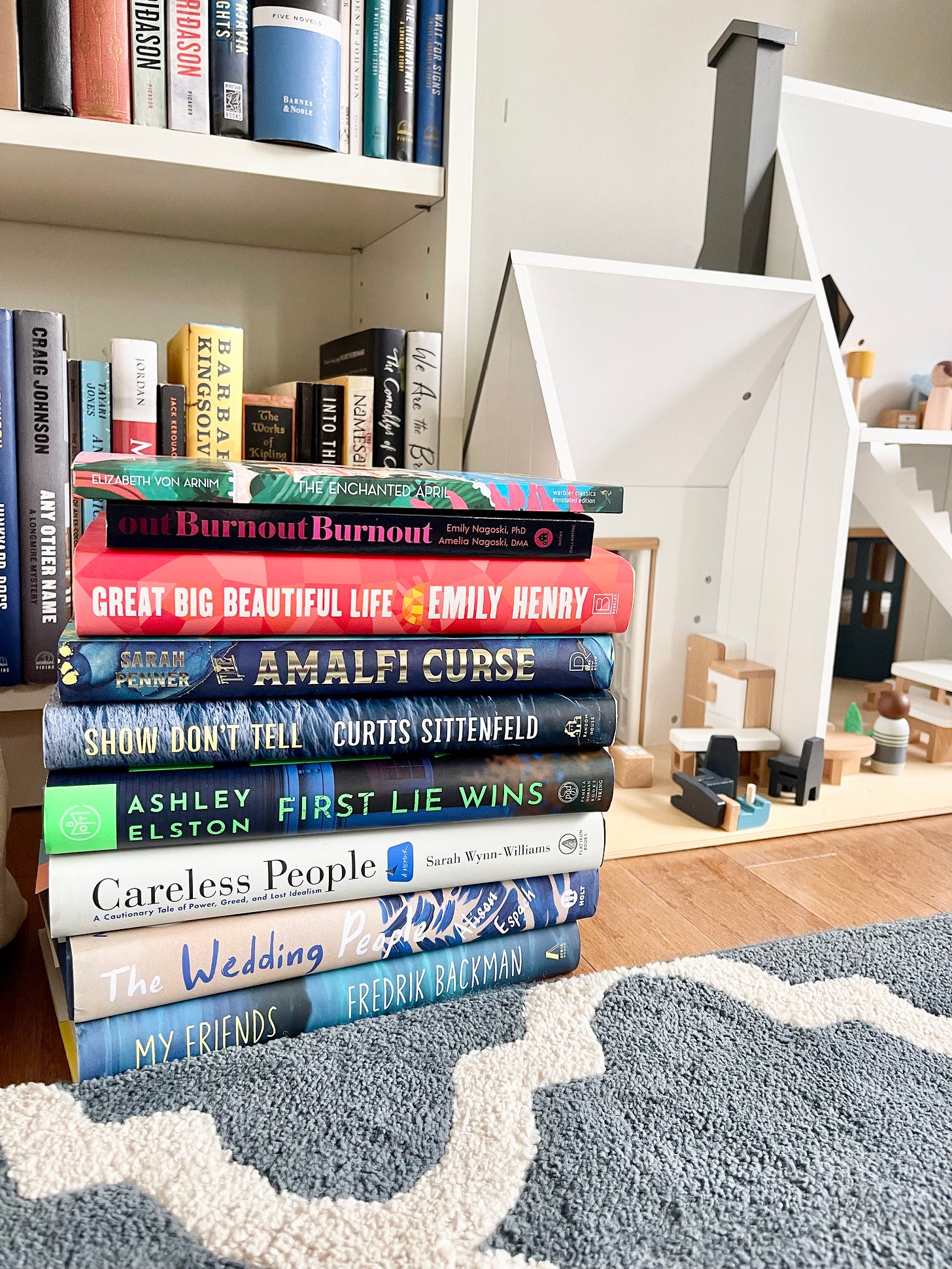
We shall see how many of these I get through, but here’s to hoping!
But, for my May reads, I read some fairly disparate books and am in the middle of rereading the Lord of the Rings trilogy. I’m finding a lot of joy in the familiar things in this season, and this series is about as familiar as it gets. Full of beautiful allegory, these pages captivated me at a young age (aided by my adoration of Orlando Bloom’s Legolas—of whom I had a cardboard cutout in my teenage bedroom—but that is a story for another day 🤣).
Now that I understand Tolkien’s fascination with the Icelandic sagas (hot take: he felt the sagas should have places of higher honor and wider readership in the literary canon than Shakespeare…oh snap 🔥), these stories are coming alive with more depth and nuanced layers than ever. Outside of the tale of Frodo and the Ring, the books I read this month included:
A slim but superb novel about taking place during one 24-hour period on the International Space Station.
The second installment of my beloved Beartown trilogy (the first of which is on the list of RSM’s Most Impactful Reads).
A piece on bravery by a spiritual leader who truly practices what she preaches.
A business know-how book about one of the savviest business bosses of our time: Taylor Swift.
Orbital by Samantha Harvey
A slim but magnificent tome, detailing one 24-hour period on the International Space Station. Six astronauts from all over the world experience the 16 orbits around the little rock we call home. These revolutions bring the Earth into greater focus and, simultaneously, bring to mind the vastness of space that is literally holding them. They see a typhoon on the rise in the Pacific Ocean, one astronaut hears of the death of her mother, and they work out to keep their bodies from surrendering to frailty during these weightless months.
Harvey masterfully weaves together the profound and mundane, capturing how extraordinary circumstances can make ordinary human experiences feel more precious and fragile. The astronauts' perspectives shift between the technical demands of their mission and moments of startling introspection as they witness Earth's beauty and vulnerability from their unique vantage point. Each orbit becomes a meditation on distance, literally and the emotional distances we navigate in our relationships, our understanding of ourselves, and our connection to the planet we call home.
The author's background in environmental science and philosophy infuses the narrative with layers of meaning that extend far beyond the confines of the space station. Through the astronauts' observations, Harvey authentically explores themes of climate change, globalization, and humanity's place in the cosmos.
The prose was truly luminous, and it sucked me in with a pull stronger than a black hole. Harvey's writing achieves a rare balance between scientific precision and poetic beauty, making complex concepts about space, physics, and human psychology accessible while never dumbing them down.
It's a story about perspective in every sense—how physical distance can clarify emotional proximity, how the vastness of space can make human problems seem both insignificant and infinitely important, and how isolation can paradoxically connect us more deeply to what we've left behind. This is a serious contender for RSM Reads of the Year 2025.
Us Against You by Fredrik Backman
Oh wow. Backman does it again. Every time I read another of his works, I think he is one of the greatest living writers of our time. And I am privileged to be alive while he continues to put out into the world gift after gift with every novel.
(Slight side note: Backman also has a brilliant translator. I often think about how translators don’t get their due. In one of my World Literature classes in college, we read snippets of a more traditional translation of Anna Karenina alongside the more modern Pevear and Volokhonsky text. I also find their relationship adorable and fascinating: a nerdy romance for the ages. 🤓 But I digress, the Pevear/Volokhonsky version brought Anna to life in a way I’ll never forget. Ok, back to Backman…)
This is the second of the Beartown series, and it did not disappoint, which was hard to do as the first book was so excellent. I adore his characters; they are so well developed and flawed and, oh, so easy to love.
And his deft narration movement from omniscient to “we” brings the story to the heart in the most brutiful ways.
This series is about hockey, but none of it is about hockey. And yet all of it is about hockey. Backman balances on this precarity to show us truths about human nature, community, and the things we carry. Indefatigably honest, Backman tells the story of the lives in this small Swedish town in the middle of the woods, and the pressures of competition, politics, and the power of deciding to tell the truth, one sentence at a time. If you have never picked up one of his books, might I suggest you try the Beartown trilogy?
There’s Nothing Like This: The Strategic Genius of Taylor Swift by Kevin Evers
(Note: this will include copious amounts of Swiftisms. Please skip this review if you aren’t here for that kind of content. But I will judge you for that choice.)
Who knew that Taylor Swift's rise to global domination would become required reading for business school curricula? This book breaks down the pop culture colossus through the lens of corporate strategy, and honestly, it's brilliant. The MPA in me was absolutely delighted to discover that one of the senior editors of the Harvard Business Review is a full-blown 💗 Swiftie dad 💗—because nothing says credible business analysis quite like a policy wonk defending the economic implications of “All Too Well (10 Minute Version).”
This isn't just another celebrity biography; this is a business case study. From understanding her unique brand as a teenage country artist to the masterstroke of re-recording her entire back catalog, Swift emerges as a prime example in brand ownership, customer loyalty, and strategic reinvention. The reputation era gets particular attention as a masterclass in controlled narrative destruction and reconstruction—Swift literally killed off her old brand identity and rose from the ashes with a new aesthetic and sound that addressed her critics head-on while expanding her market reach.
What struck me most was how the book reframes Swift not just as an artist, but as a CEO who happens to express her quarterly reports through chart-topping songs.
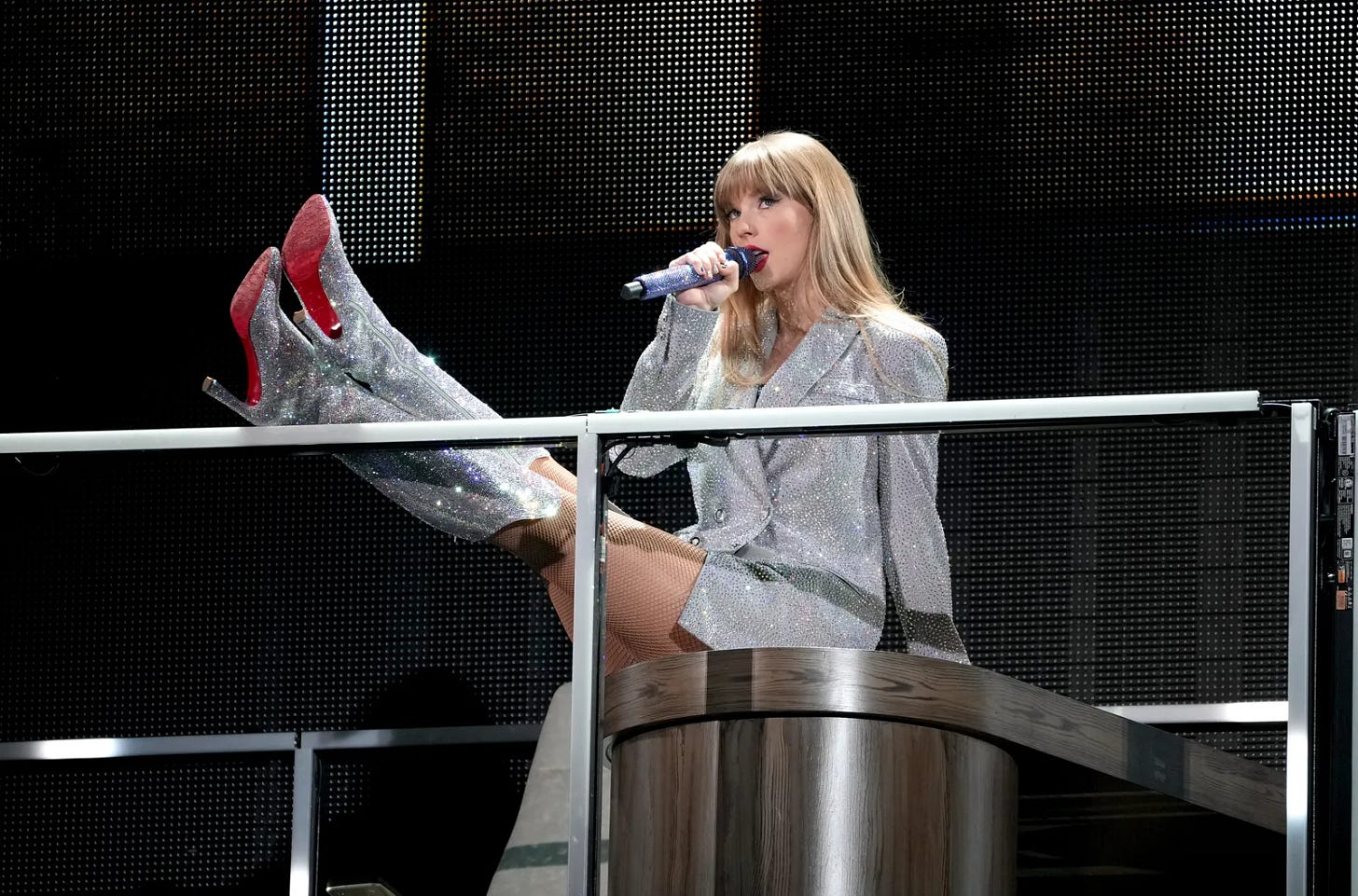
Her pivot from country to pop to folk and back again isn't just artistic whimsy—it's strategic diversification. Her public feuds aren't just tea to be spilled—they're masterclasses in brand positioning. Even her notorious secrecy around album releases becomes a lesson in scarcity marketing and entertained anticipation.
The writing manages to be both academically rigorous and surprisingly entertaining, threading the needle between business jargon and pop culture analysis without talking down to either audience.
Who says you can't learn about market disruption from someone who weaponized a glitter pen?
How We Learn to Be Brave by Mariann Edgar Budde
This woman will forever have my respect. Because she wrote a book about being brave, I have watched her live out that quality in her life on the biggest stages with the most significant stakes.

Speaking truth to power. This woman has the receipts. So when she talks about bravery, I am listening. I borrowed this book from my Dad’s library (which puts my meager four shelves to shame—insert saying about apples and trees 🍎), and it was wonderful to read his underlines, some of the same places that spoke to my heart resonated with him too.
Bishop Budde discusses several moments in our lives that require bravery: calls to go, decisions to stay, beginning, accepting what you do not choose, dealing with letdown, and stepping up. I found so many gems in this book, but one that stuck with me is the section about accepting the thing you didn’t choose, which is where I am living.
“Our lives are full of unforeseen choices, struggles, and calling. Sometimes we can overcome these obstacles, and sometimes we must make peace with them.”
I feel like I’m living out Taylor’s “I Can Do It With A Broken Heart” (I may be listening to it while I write this), doing all the everyday things—the work, the parenting, the friend time, the mediation prep, the church life—and doing them well, while walking through a deep grief.
I have shown up and shown out for clients, deftly leading meetings and being a walking FAQ for all the minuscule details about programs. I have coordinated school mission projects and end-of-year parties, reorganized my work days to attend field trips and picnics. I have kept up this writing rhythm on this little corner of Substack (and it has brought me great joy), even in months when I only have the mental space for one or two books. I have fixed sinks, filled tires, and gotten a handle on my finances because I am a grown-ass woman. I have gone to graduations and plays and showed up for the young people in my life who mean so much to me.
And—
I have said YES to every offer of help, every meal, mocktail, or meetup (and even a yard clean-up day, alabanza for friends who will weed your overgrown yard with you). I have depended on my community in a way I could never have foreseen when I first started prioritizing relationships with these people.
I do not share to brag on myself, but rather as a reminder that each of these mundane moments was another stone laid on a new foundation, another opportunity to make peace with what is. And—I want to be very clear about this—I’m not laying those stones alone.
What I am learning is this: peace does not mean painless. Peace isn’t an emotion; it is a state of being. And that is an encouragement for anyone in any place of uncertainty or upheaval. I’m in the thick of it, I’m nowhere near through.
I am writing this as I hack my way through the jungle with a machete, and I can see approximately as far as the next mass of undergrowth just ahead of me. I am covered in dirt and have fresh cuts on my arms from where branches have stung my flesh. But I am here. And to use another Swiftie-ism, “this is me trying.”
That’s all for the May installment of reads of the month. See you later in June for another installment of RSM’s Best Of Series, this month will include favorites On Being A Person In The World (e.g., faith, embodiment, and more)!
Cheers from my shelves to yours,
RSM





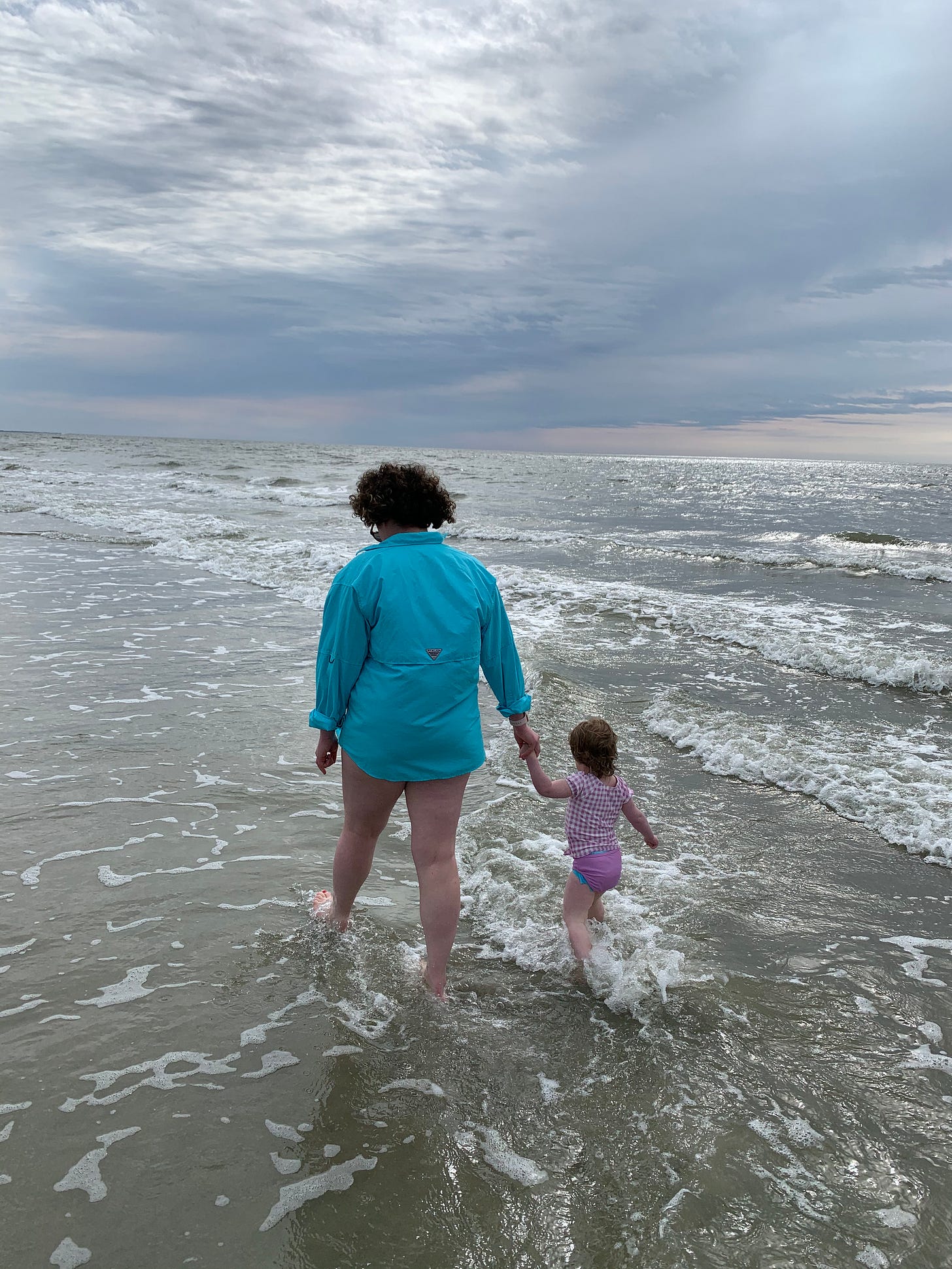
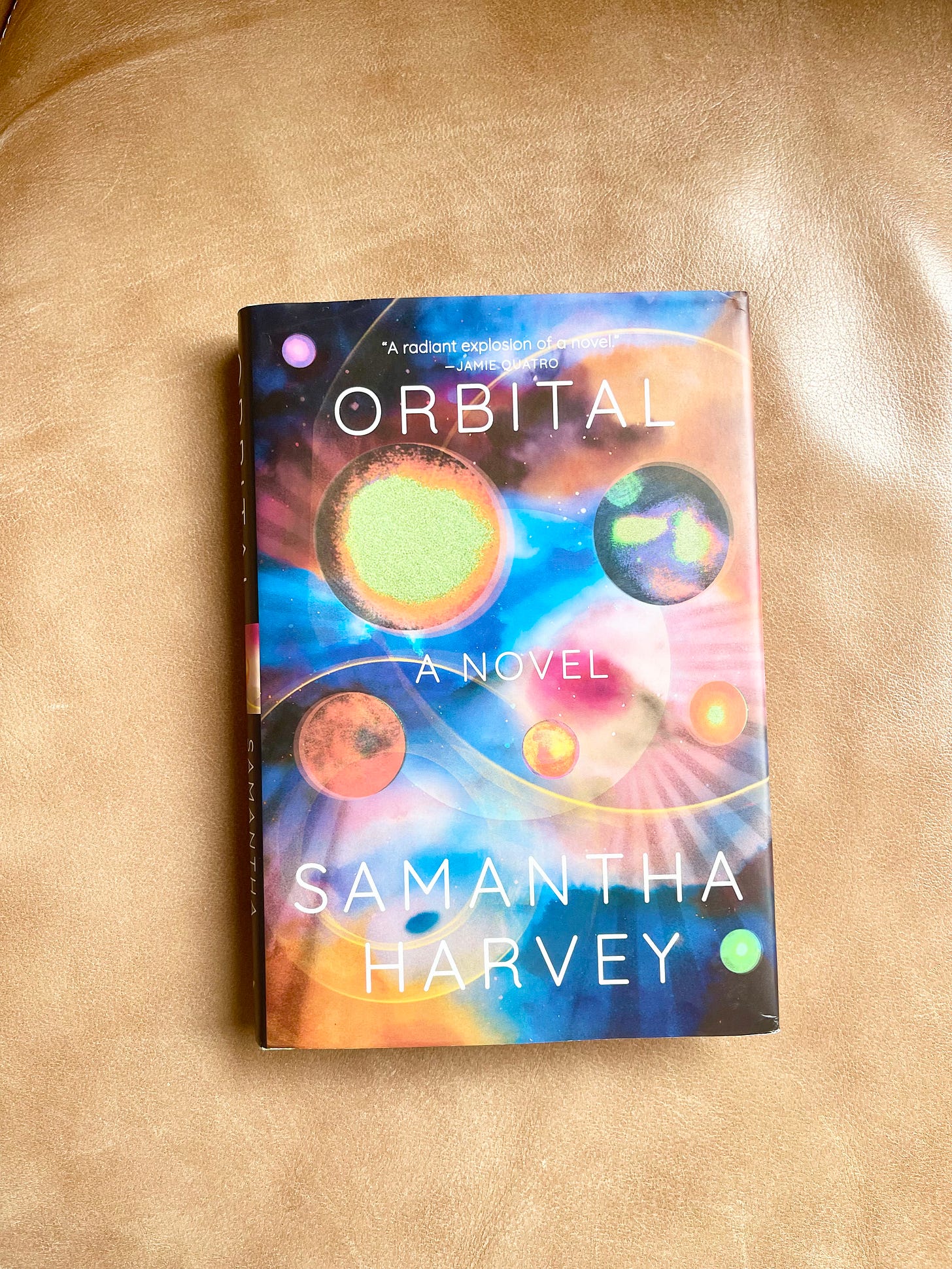
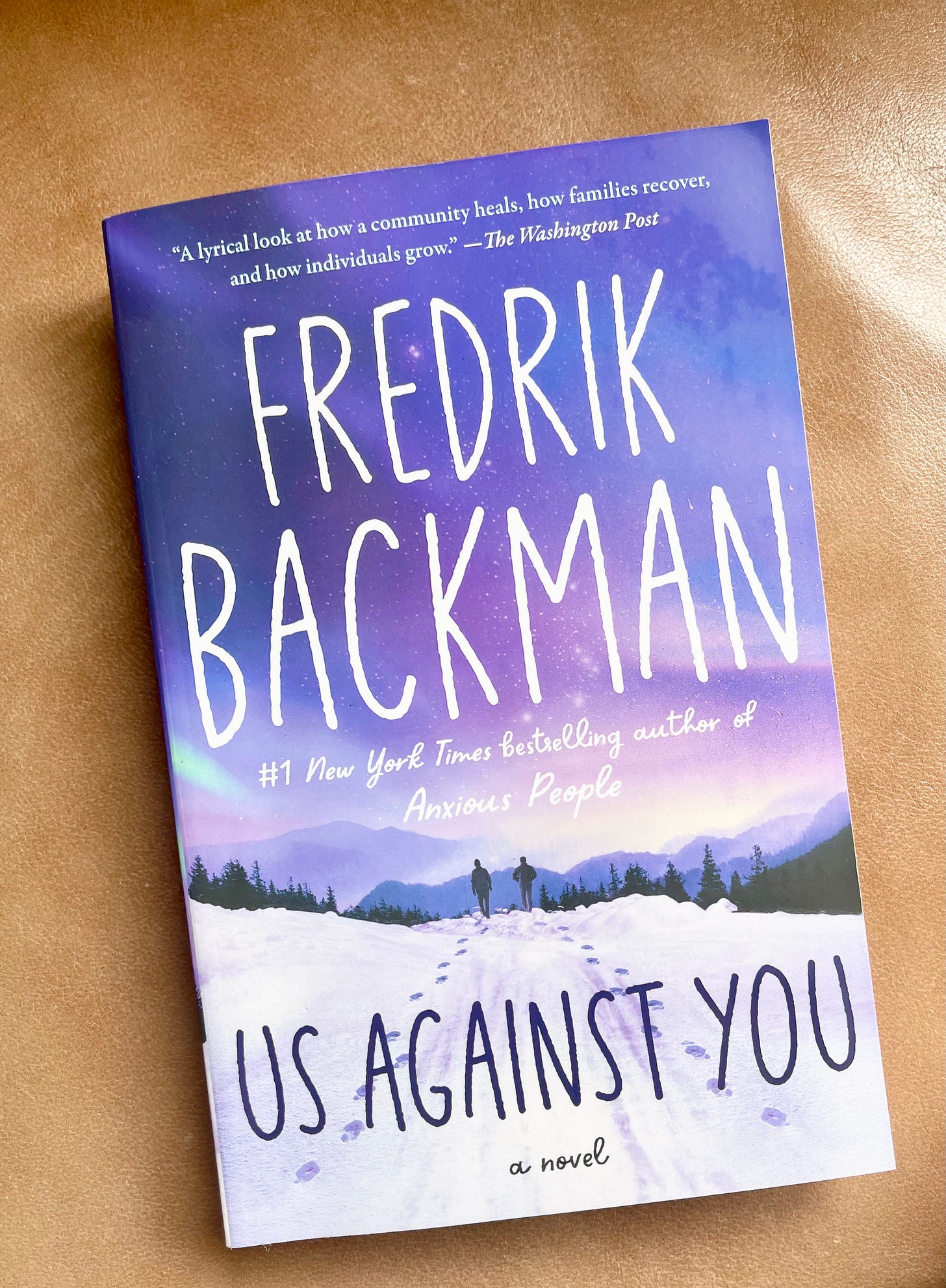
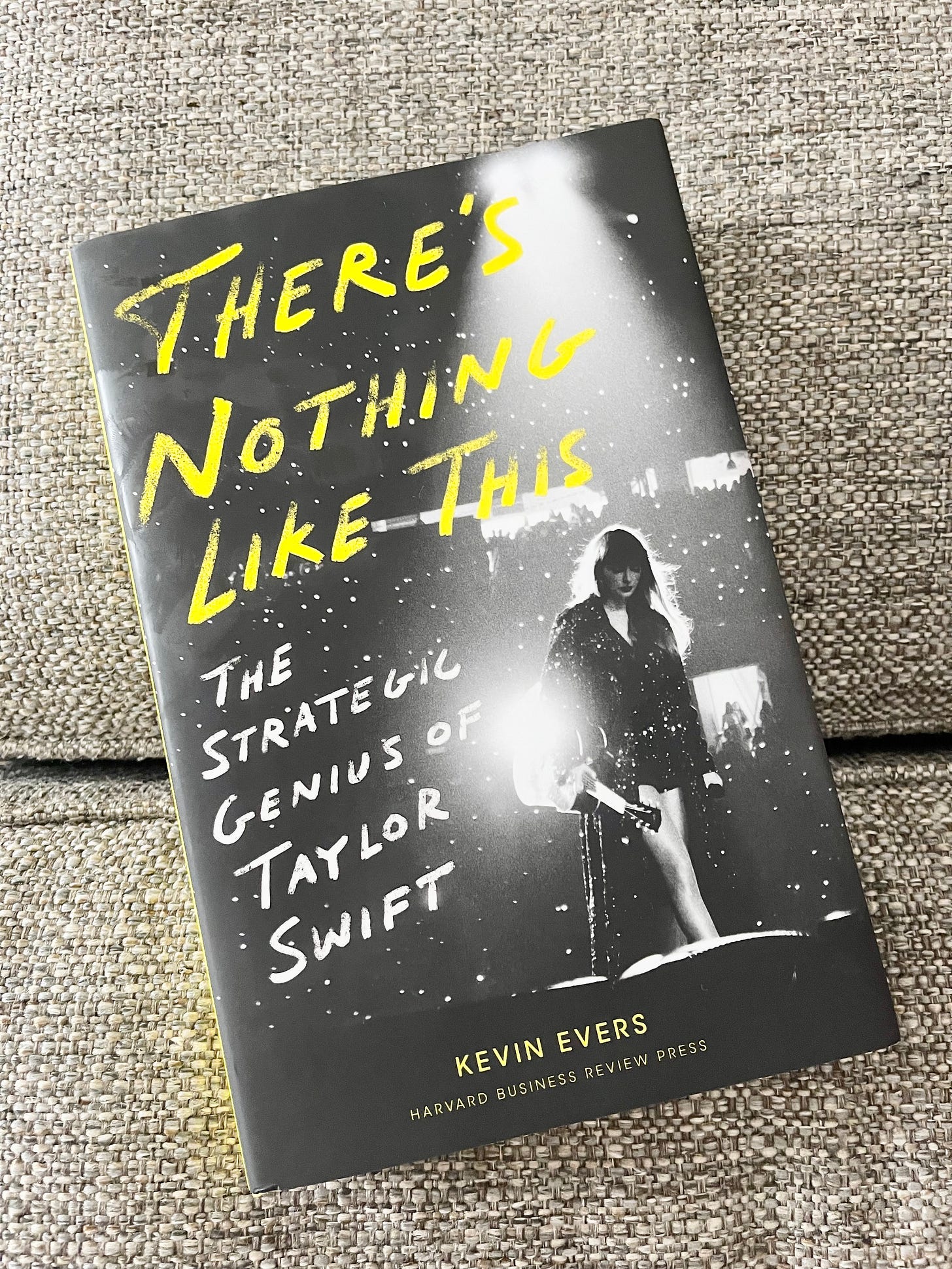
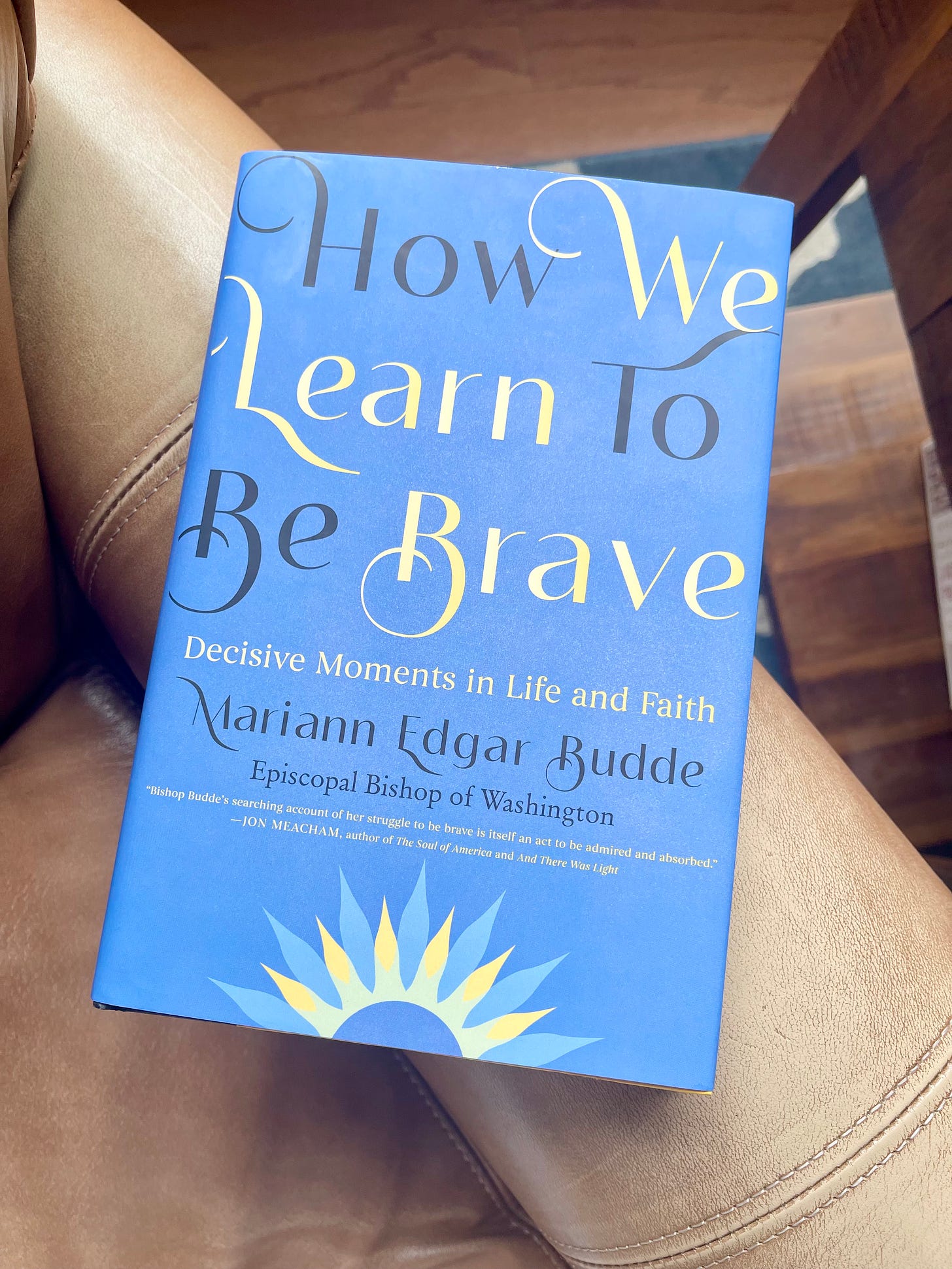


My dearest, you constantly amaze me! Your writing is beautiful and appreciate how you share with measured frankness and vulnerability. Always love to see what is on your current book stack and a bit intimidated in your ability to wade through books I can’t get past the first chapter. Rock on RSM!